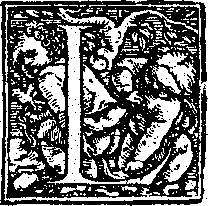 ast year, the sale of print books improved in comparison to previous years, with some bookstores reporting 2014 as their most profitable year. This is great news for bookstores, but not so great news for ebook enthusiasts who have become too familiar with e-readers and forgotten how to read printed books.
ast year, the sale of print books improved in comparison to previous years, with some bookstores reporting 2014 as their most profitable year. This is great news for bookstores, but not so great news for ebook enthusiasts who have become too familiar with e-readers and forgotten how to read printed books.
This may sound like something out of a dystopian, and I know I’ve come across this theme in a few, but having recently come into possession of a couple paperbacks, I realized a hard truth: my years of book-reading cheats, once second-nature, had gone out the window.
For all of you who have become a bit too dependent on your e-reader, here are some print book reading tips to reintroduce you to the world of printed books.
5 Tips for Reading a Printed Book
1. Books do not come with an illuminated screen. Sure, we all know this, but there’s a difference in knowing this and in experiencing it first hand when you go to lie down at night to read, only to realize you have to keep the light on to get in a few chapters. The lack of light also creates problems when you wake up in the middle of the night. A further challenge is early morning reading. I used to know the exact level of dawn light needed to read in the early morning. Warning – this is something you forget when it’s been a while, and results in a lot of trial and error.
2. Bookmarks are a printed book’s best friend. I’ve gotten a bit too reliant on my e-readers ability to always keep my place. I’m become so reliant that while reading a print book, I closed the cover without even thinking to look at my page number or insert a bookmark. I’m sure you can image the frustration that ensued. Luckily, bookmarks come in many forms. My go-to is a rubber band inserted between my pages, but any sheaf of paper (receipts, napkins, etc) works too.
3. Print books do not have a built-in dictionary. I like words. If you enjoy reading, you probably also enjoy words. In my opinion, a good writer is someone who can take words and use them in interesting ways. Because of this, I rely pretty heavily on my e-reader’s built-in dictionary (though after reading The Word Exchange I am rethinking this). I like to see a word’s full meaning so that I can identify why an author chose an interesting pairing. When reading print books, looking up words requires a lot more effort. My advise – keep a dictionary beside you at all times.
4. Hands-free reading is a bit more challenging when reading a print book. This is probably a good thing – it makes multitasking more difficult, which forces you to focus more on what you are reading. I wouldn’t be surprised if this is a contributing factor in why print book readers absorb more than ebook readers.
5. Always have a second book on hand. E-readers solved a very important problem – the ability to always have a backup book ready to go. When reading a print book, you need to always anticipate that you may finish the book. This means traveling with a second book at all times. Which means anticipating what you will want to read next. Print books make us better planners.
I hope these tips prove useful when you next find yourself in the possession of a printed book. If you have any other tips, please share: I’d love to add them to the list.

